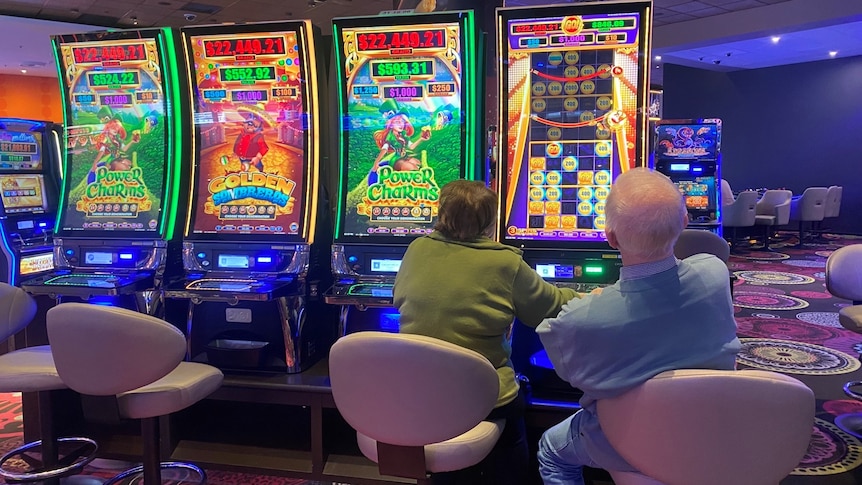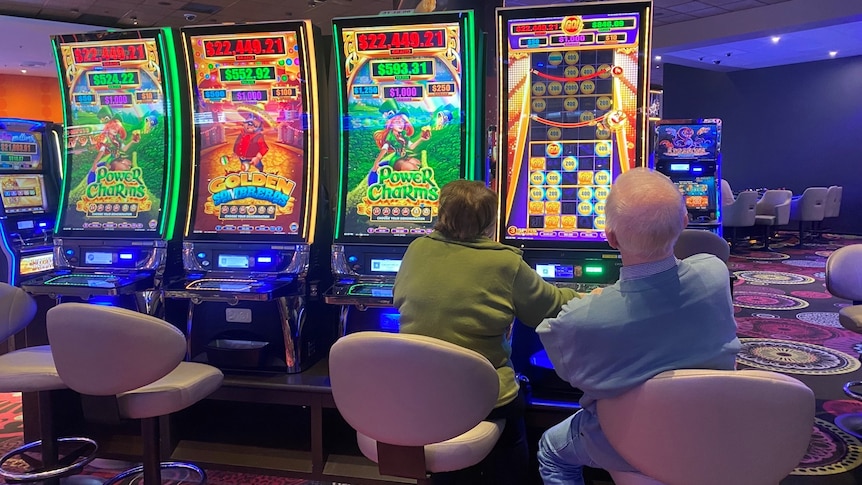
Rachel Mealey: A new report has found Australia leads the world in gambling losses per capita, with the average person losing $1,600 a year. The Grattan Institute’s report says the majority of our losses are through betting and the pokies. And the report points out ways to prevent harm, including limits on how much individuals can gamble online and on pokies. And it raises the contentious issue of gambling advertising, as Isabel Moussalli reports.
Isabel Moussalli: Anna Bardsley says she retreated from everything and everyone during her 10-year poker machine addiction.
Anna Bardsley: It made everything in my life really, really bad and my life was pretty tough to begin with. I’ve had five children and two of them died and I was in a difficult long-term marriage that was the reason why I went to the pokies in the first place. I went there to escape, to get away from the arguing and I got hooked. And I didn’t know at the time that I was engaging with a dangerous addictive product, a product that was designed to addict.
Isabel Moussalli: At first she thought a mental $20 limit would protect her.
Anna Bardsley: There used to be signs in the venues when I went that said, set a limit and stick to it. Well, every time I went into one of those places, I set a limit. But once I was in front of a poker machine, I couldn’t stick to it anymore because it had done something to my brain.
Isabel Moussalli: The Victorian woman is now part of a group of Australians who’ve experienced gambling addiction and are calling for change. One approach, which she calls sensible protection, involves setting limits that can’t be ignored.
Anna Bardsley: We could have mandatory carded use of poker machines where you had to have a card, you set a limit that is a reasonable limit that works within your income and that’s a binding loss limit. You can’t lose any more than that. Nobody means to go into gambling, into a venue or into an account on their phone or on their computer and lose hundreds of thousands of dollars. Nobody does.
Isabel Moussalli: In Tasmania, that measure is expected to begin late next year. All pokies players will need to preload money onto cards and set limits of up to $100 a day, $500 a month and $5,000 a year unless they can prove they can afford more. In a gambling report released today, Think Tank the Grattan Institute advocates for a similar scheme nationwide, applying to both pokies and online gambling. CEO, Aruna Sathanapally, says there are two main things governments need to do.
Aruna Sathanapally: The first is reduce our exposure. So that’s where the gambling ad ban sits, but also reducing number of pokies. The second thing is that there are proportionate practical reforms that we can put in place to make gambling products safer. The way you can do this is by introducing mandatory pre-commitment. This has been done in other countries. We can do it here where gamblers set their limits before they start gambling and we set a maximum loss limit that really acts as a seatbelt to prevent that serious and catastrophic harm that a small proportion of gamblers suffer, but that accounts for the lion’s share of the industry’s profits.
Isabel Moussalli: When it comes to advertising, the Institute wants to see a total ban. A Senate inquiry has previously suggested the same, but the Federal Government is yet to reveal its response. Aruna Sathanapally says the gambling industry has been allowed to run wild.
Aruna Sathanapally: One of the things we found doing the research here is that pokies are more common in our suburbs than ATMs, public toilets or post boxes, which just gives you a sense of the scale to which pokies have gotten to, particularly in the eastern states. And that helps to explain, we know from the research, the level of gambling harm because the closer you live to a pokie, the higher your chances of suffering gambling harm.
Isabel Moussalli: Dr Ben Riley is a therapist and researcher specialising in gambling addiction at Flinders University. He backs the Grattan Institute’s recommendations, saying his recent research found voluntary measures aimed at reducing harm are not popular.
Ben Riley: There’s low uptake, but also when you look at the reasons for the low uptake, one of the main reasons is that gamblers tend to view those tools as tools used only for people that have got an existing problem. So they say, well, that doesn’t relate to me, so they don’t use them. We use the analogy of a seatbelt. And so we don’t look at the seatbelts and say, oh, only those at risk of driving dangerously use them. We say they’re for use for everyone to keep everyone safe, because any amount of driving is always associated with a level of risk, no matter how safe you might drive. So the same thing with gambling. We need some level of safety so that people don’t get caught up.
Isabel Moussalli: The peak body for online gambling companies responsible wagering Australia has been contacted for comment.
Rachel Mealey: Isabel Moussalli reporting. And if you or someone you know needs help with gambling addiction, you can call the International Gambling Helpline on 1800 858 858.
